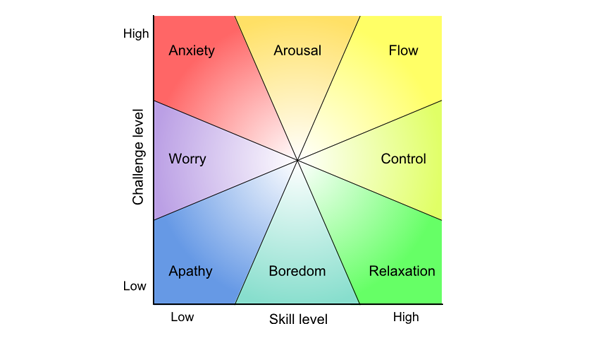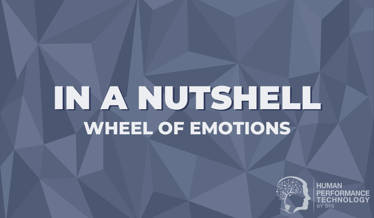In a Nutshell: Flow Model
Dr. Mihaly Csikszentmihaly (pronounced Me-high Cheek-sent-me-high) is one of the founders of the positive psychology movement, which studies happiness and human potential. Csikszentmihalyi wanted to understand the points during everyday life when people experienced the happiest moments.
He was particularly fascinated by creative people and artists, such as musicians and painters, who would become totally lost in their work and experience a surreal state of “ecstasy,” even depriving themselves of food and sleep.
In order to work out when people were at their happiest, Csikszentmihalyi and his colleagues used a technique called the “Experience Sampling Method,” or ESM, at the University of Chicago in the early 1970s. At the signal of a pager or watch, a person would write down what they were doing and feeling at a particular point during the day, then rate their state of consciousness on various numerical scales. The ESM found that happiness generally occurs when a person was doing his or her favourite activity, but also found that there were certain elements present at times of extreme interest in a given task.
“The best moments in our lives are not the passive, receptive, relaxing times… The best moments usually occur if a person’s body or mind is stretched to its limits in a voluntary effort to accomplish something difficult and worthwhile.” — Mihaly Csikszentmihalyi
This state was termed “flow,” which was published in the international bestseller, “Flow: The Psychology of Optimal Experience” (1990).
Overview
Flow is the mental state in which a person is completely absorbed in an activity, marked by heightened concentration, intense motivation and a sense of time standing still. Commonly, people might refer to this state as being “in the zone,” "dialed in" or "in the groove." Flow is the opposite of apathy.
Csikszentmihaly provides a list of 7 characteristics that can be used as a guidepost for understanding what the experience of flow is like.
7 Characteristics of Flow
- Completely involved in what we are doing — deep concentration.
- A sense of ecstasy — of being outside everyday reality.
- Great inner clarity — knowing what needs to be done, and how well we are doing.
- Knowing that the activity is doable — that our skills are adequate to the task.
- A sense of serenity — no worries about oneself, and a feeling of growing beyond the boundaries of the ego.
- Timelessness — thoroughly focused on the present, hours seem to pass by in minutes.
- Intrinsic motivation — whatever produces flow becomes its own reward.
The Flow Model
Mental state in terms of challenge level and skill level, according to Csikszentmihalyi's flow model.

Flow occurs when a meaningful task has a high enough level of challenge to tests one's skills (see top right of model). If there is not enough challenge, the individual is likely to become disinterested (Boredom); if there is too much challenge they are likely to feel overwhelmed (Anxiety).
Csikszentmihalyi notes that Arousal (top middle) is still a good zone to move through because it is where most learning happens, and it allows one to improve his or her proficiency and move closer to a Flow state over time. Similarly, it is also possible to enter Flow from the Control zone (middle right) by gradually increasing the level of challenge.
References
- Flow: The Psychology of Optimal Experience” (1990), Mihaly Csikszentmihalyi
- Finding Flow: The Psychology of Engagement with Everyday Life (1997), Mihaly Csikszentmihalyi
- Flow, The Secret to Happiness, TED, 2004
- 'Flow' Experiences: The Secret to Ultimate Happiness?, Lance P. Hickey, Ph.D., 2011
- Happiness in Everyday Life: the Uses of Experience Sampling, Journal of Happiness Studies, M. Csikszentmihalyi and J. Hunter, 2003
- Experience Sampling Method: Measuring the Quality of Everyday Life (2007), Joel M. Hektner, Jennifer A. Schmidt, Mihaly Csikszentmihaly
This article offers an expanded description of the summary listed in our post 40 Must-Know HR, OD, L&D Models.

Theo Winter
Client Services Manager, Writer & Researcher. Theo is one of the youngest professionals in the world to earn an accreditation in TTI Success Insight's suite of psychometric assessments. For more than a decade, he worked with hundreds of HR, L&D and OD professionals and consultants to improve engagement, performance and emotional intelligence of leaders and their teams. He authored the book "40 Must-Know Business Models for People Leaders."


.png?width=374&name=Nutshell%20-%20The%2080-20%20Rule%20(Pareto%20Principle).png)
We Would Like to Hear From You (1 Comment)